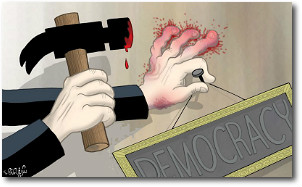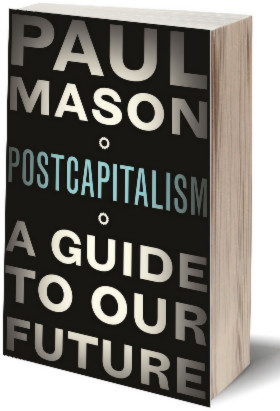Conor Cradden 1st June 2018
The latest draft of the World Bank’s working draft of its 2019 World Development Report (‘The Changing Nature of Work’) was posted on the 25th of May. Thankfully some of the worst of the errors and distortions in the April 20th draft have been abandoned. I have no idea if they were dropped in response to my post criticising the earlier draft, but I reckon I’m going to claim the credit anyway. Go me! Unfortunately many of the other problems remain. The overall anti-regulatory thrust of the paper certainly has not changed one iota.
The authors would probably argue that they’re arguing for deregulation of business at the same time as the development of enhanced social protections systems but really, who are they trying to kid? They’re telling employers exactly what they want to hear, which is that it’s not up to employers to be fair. They just do what the market says and the state will take up the slack. This not only ignores the very low likelihood that states can or will step in, but also the enormous benefit—to workers, businesses and society as a whole—of involving workers in decision-making at work.
What’s gone?
The May 25th draft drops the claim that “Technology adoption is negatively associated with the strictness of labor regulations”. In the earlier version this was referenced to a paper that actually found that the association between regulation and technology use varied with the type of regulation. High minimum wages were positively associated with digital technology use.
Also dropped is the reference to France’s requirement for businesses with more than 49 employees to have a joint safety and health committee. In the earlier draft this was given as an example of ‘burdensome’ regulation in the context of a claim that ‘business-friendly’ regulation is associated with lower levels of poverty. The latter claim remains, but we are at least not being asked to accept that a requirement for employers to talk to workers about how to improve safety is a burdensome regulation.
The incorrect claim that “labor regulations apply only to formal work” has been replaced with “most governments are unable to regulate a substantial part of the economy” (para 337 of May 25th draft). On the other hand, the equally incorrect claim that labour regulations “cover few, only formal workers whose labor is observed, regulated and taxed by the state” is left unchanged.
Finally, the ludicrous argument that there is a need to ‘level the playfield’ in favour of businesses is gone. We should be thankful for small mercies I suppose, but the claim that minimum wages and the regulation of firing are economically damaging remains unchanged.
What’s still there?
The May 25th draft maintains its bizarre attempt to argue that we have Napoleon to blame for burdensome and ‘ill fitting’ labour regulation in emerging economies. It still tries to argue that pension schemes jointly funded by workers and employers are economically counterproductive on the basis of a single paper that also reports evidence that the introduction of this type of pension in Ethiopia has had significant positive effects. It still tries to argue that ‘heavier’ regulations are a cause of informal employment on the basis of one out-of-date comparative report that looked only at the procedural aspects of starting a business.
Where to now?
The draft report is still a work in progress, but none of the changes made since the April 20th draft have made any real difference—it is still a shoddy and potentially dangerous piece of work. At this stage there seems little prospect of it being significantly improved. I’ve heard people in other international organizations express shock and bemusement that the Bank could release such an embarassingly bad paper as a flagship report. The tragedy of it is that it would be really useful to have a serious and properly informed discussion about the topics that it raises. It is long past time that we talked about the balance between the resposibilities of the state, of businesses, of trade unions and of individuals. There is an obvious need to think critically about existing models, particularly about how to make labour rights effective for non-standard and informal sector workers. But WDR2019 is not shaping up to be a useful contribution to that discussion.

 The paper below has been submitted for open discussion by members and friends of the
The paper below has been submitted for open discussion by members and friends of the  It’s a credit to the tireless efforts of Professor Guy Standing that the word ‘precariat’ has made its way into most English dictionaries. In case you’re not up to speed (and who is these days?) it means: “the class of people who are poor and do not have secure jobs” (
It’s a credit to the tireless efforts of Professor Guy Standing that the word ‘precariat’ has made its way into most English dictionaries. In case you’re not up to speed (and who is these days?) it means: “the class of people who are poor and do not have secure jobs” ( Bestu oskir from Iceland — the Switzerland of data! That’s where you’ll find
Bestu oskir from Iceland — the Switzerland of data! That’s where you’ll find  “We want the mines, canals, railways handed over to democratically organized workers’ associations… We want these associations to be models for agriculture, industry and trade…”
“We want the mines, canals, railways handed over to democratically organized workers’ associations… We want these associations to be models for agriculture, industry and trade…” Members of this network have been arguing that the union movement needs to become more involved in organizing for workplace democracy. Study after study, survey after survey, have shown that workers in post-industrial nations want more direct voice and influence in the workplace. However, by and large their aspirations are represented by a movement whose bargaining agenda has remained the same for decades.
Members of this network have been arguing that the union movement needs to become more involved in organizing for workplace democracy. Study after study, survey after survey, have shown that workers in post-industrial nations want more direct voice and influence in the workplace. However, by and large their aspirations are represented by a movement whose bargaining agenda has remained the same for decades. Apologies for lateness! Paul Mason’s book PostCapitalism: A Guide to our Future came out in 2015. However it wasn’t until the victory of Donald Trump that I realised how important it was. Do yourself a favour:
Apologies for lateness! Paul Mason’s book PostCapitalism: A Guide to our Future came out in 2015. However it wasn’t until the victory of Donald Trump that I realised how important it was. Do yourself a favour: 
 NCE upon a time there was a great chain of being. Up the top was God; down at the bottom were all the inanimate objects
NCE upon a time there was a great chain of being. Up the top was God; down at the bottom were all the inanimate objects